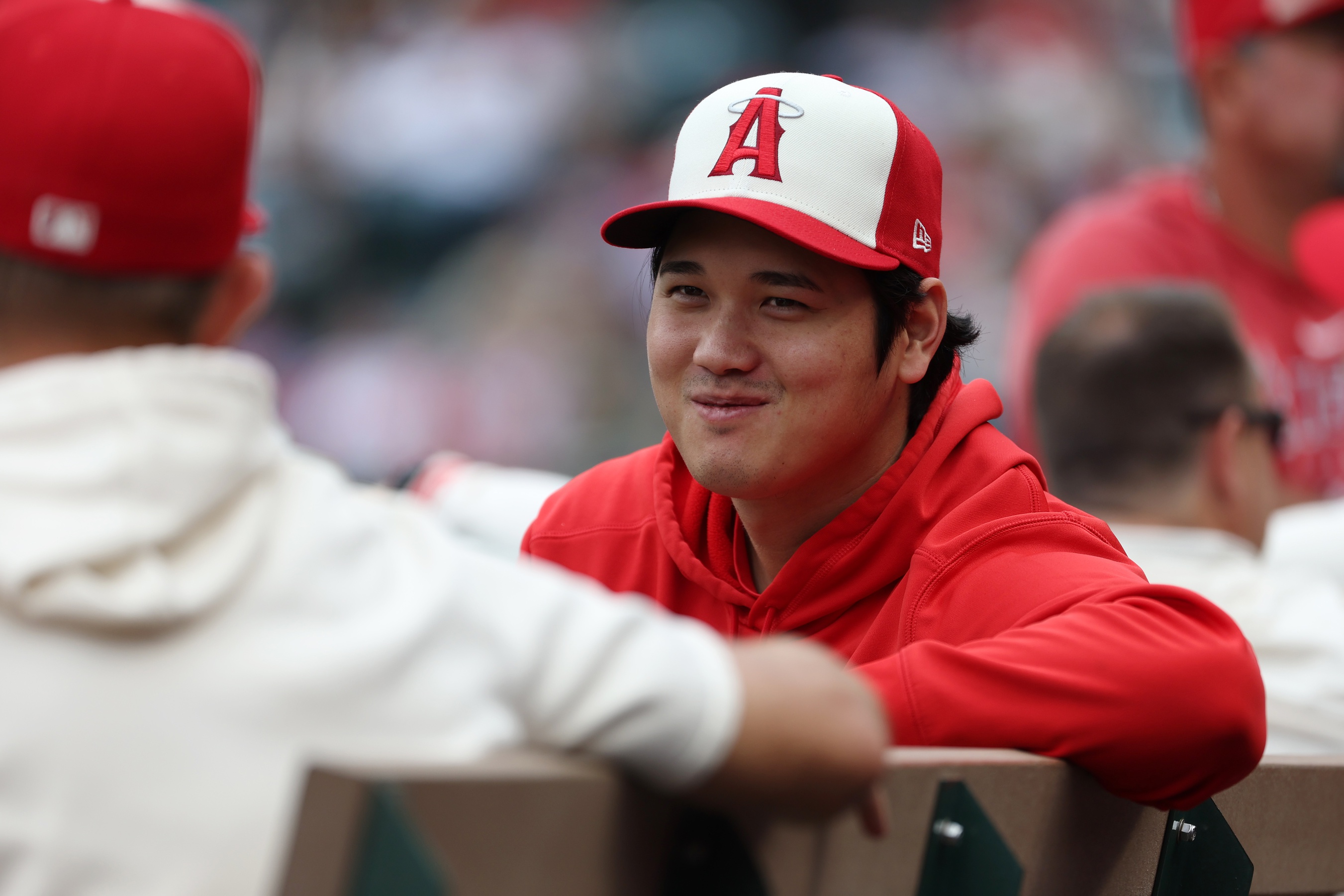Shohei Ohtani’s Free Agency Is the Biggest Mystery in Baseball
His agent won’t talk about it. His interpreter won’t talk about it. Team officials in position to know won’t talk about it.
Not which kind of surgery Shohei Ohtani had, which teams he has met with nor even what sort of deal he is seeking in free agency—although those answers are hard to get, too. No, people close to the two-way star refuse to reveal a much more important fact: the name of Ohtani’s dog.
Since the pup made his public debut Nov. 16 on MLB Network during the announcement of Ohtani’s second American League Most Valuable Player award, Sports Illustrated has asked eight people who might know for even the most basic details about the dog. What is his name? What kind of dog is he? When and how did he come to share his life with Ohtani? (We can assume the dog is male because the Angels, Ohtani’s former team, tweeted a photo of the pair with the caption “two very good boys.”)
We offered the promise of anonymity to those eight individuals to protect their relationships with a man who reportedly said that if a team leaked that he met with them, he would hold it against them. Three people did not respond at all. Three said they did not know—including two who asked for their own edification and were told they would not be granted access to that knowledge. Two said they knew a bit but were not allowed to share that information.
Again, the information in question is the name of the dog.
So if you think you are going to know where Ohtani is signing even one minute before he wants you to, think again.
Ohtani’s free agency constitutes the greatest mystery baseball has addressed since Babe Ruth either did or didn’t call his shot. Ohtani, 29, is the most talented player the sport has ever seen and as such could command the largest deal in the history of North American sports. But is that what he wants?
The public has no idea—and neither, according to executives, do most of them. Ohtani has not spoken to reporters since Aug. 9, five weeks before he underwent elbow surgery. His policy, unique among major leaguers, has been to talk only after he pitches. Given that he will exclusively hit next year, it remains unclear whether he will take questions at all. Traditionally winners of major awards participate in a conference call with the media after the awards are announced, as Ohtani did when he won the AL Rookie of the Year award in 2018 and the AL MVP award in ‘21, but this year, Ohtani’s scheduled availability was canceled. Someone familiar with the process said Ohtani’s team declined to make him available. Someone familiar with Ohtani’s thinking said he wasn’t told there was a call.
Agent Nez Balelo has indicated that this level of secrecy is designed to prevent a circus. That may be the intention, but it has not been the outcome.

All anyone in baseball is talking about is Ohtani. Even when they are talking about someone else, they are talking about Ohtani: Until he signs, some executives have speculated, neither will any other big names.
And anyone who knows where that will be, or when, or why is keeping it to themselves. We know that six years ago, Ohtani was not motivated by immediate riches: He came to the United States from Japan before he turned 25, making him subject to MLB rules that limit how much international free agents can earn. He agreed to only a $2.315 million signing bonus; without the cap, he might have made 10 times that. Six years ago, it was not important to him to join a team with a recent history of success: The Angels had made the postseason in only one of the previous eight seasons. And six years ago he did not seem interested in the East Coast: All seven teams he declared finalists played west of Indiana.
Six years later, any of those things could still be true, or none of them could be. And his desires may be complicated even further by his elbow injury and whichever surgery he underwent to repair it. (The Los Angeles Times has reported that it was his second Tommy John surgery. Ohtani and his representatives have not commented.) Maybe he wants a long-term deal that allows him to settle somewhere. Maybe he wants a contract structured in such a way that he can prove he is healthy and then hit the market again as a full-time two-way player. Maybe he never wants to pitch again at all. Maybe he wants to play the field. Maybe he wants to sign at next week’s winter meetings. Maybe he wants to wait until spring training. Maybe he wants to give all this up and go into dog-sitting.
What does he want? Until he signs, the questions will hound us all.
